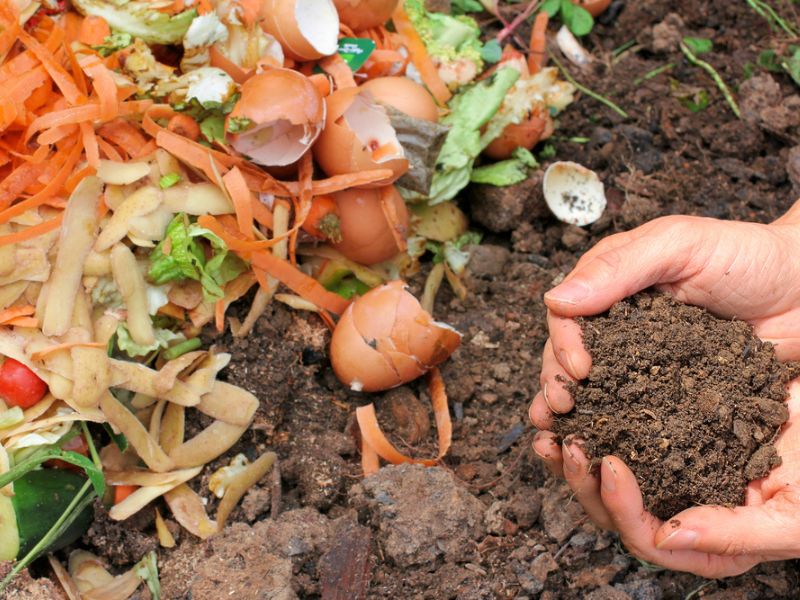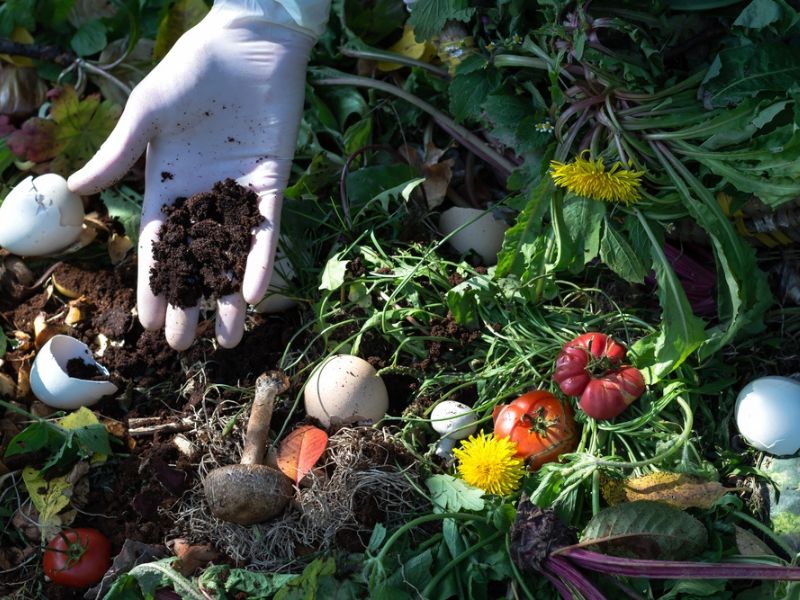Composting is a great way to reduce waste, create nutrient-rich soil, and contribute to a more sustainable environment. However, even with the best intentions, many people make common mistakes that hinder composting. To help you avoid these pitfalls, we consulted with composting experts who highlighted the top five common composting mistakes and offered their advice on overcoming them.

Image Credit: Shutterstock/Marina Lohrbach
Neglecting The Balance Of Green And
Brown Materials
Balancing green and brown materials is crucial for successful composting. Aim for a ratio of three parts brown (dry leaves, straw, shredded paper) to one part green (kitchen scraps, grass clippings, coffee grounds). Avoid adding an excess of one type, which slows decomposition.
Failing To Turn The Compost Pile
Regularly turning your compost pile promotes proper aeration and efficient breakdown of materials. Neglecting this step is a common mistake. Experts recommend turning the pile every two to three weeks for improved airflow and faster decomposition, preventing slow and smelly deterioration.
Adding Inappropriate Materials
Not all materials are suitable for composting. Items like meat, dairy, and oily foods attract pests and cause odors. Diseased plant matter and weed seeds can also lead to future problems. Focus on composting vegetable and fruit scraps, eggshells, yard waste, and non-glossy paper products while avoiding the mentioned materials.

Image Credit: Shutterstock/Jurga Jot
Lack Of Moisture Management
Compost needs proper moisture for effective breakdown. Avoid overwatering or letting the pile dry out completely. Experts advise maintaining moisture like a damp sponge. Check regularly and add water as needed to keep the compost moist but not soaked.
Impatience With The Composting Process
Composting takes time, and expecting quick results is a common mistake. Depending on materials and conditions, it can take several months to a year. Be patient and consistent with your composting practices. The reward will be rich, dark compost for your garden.